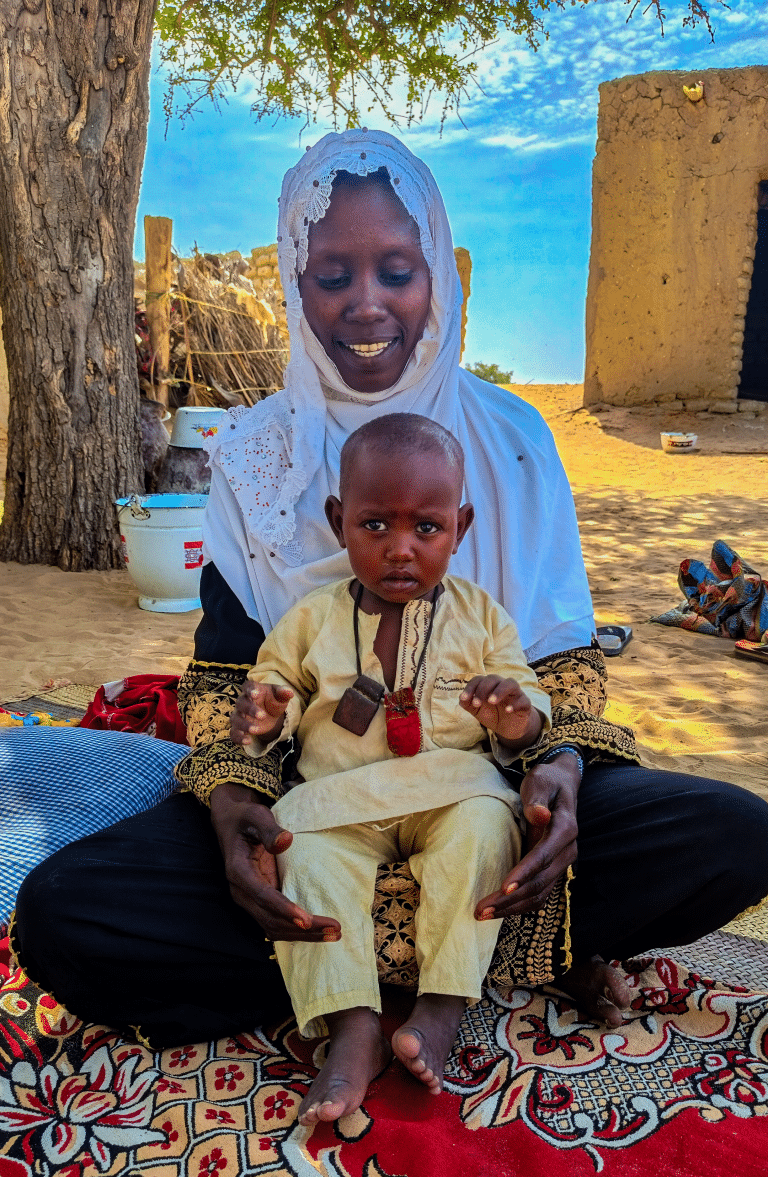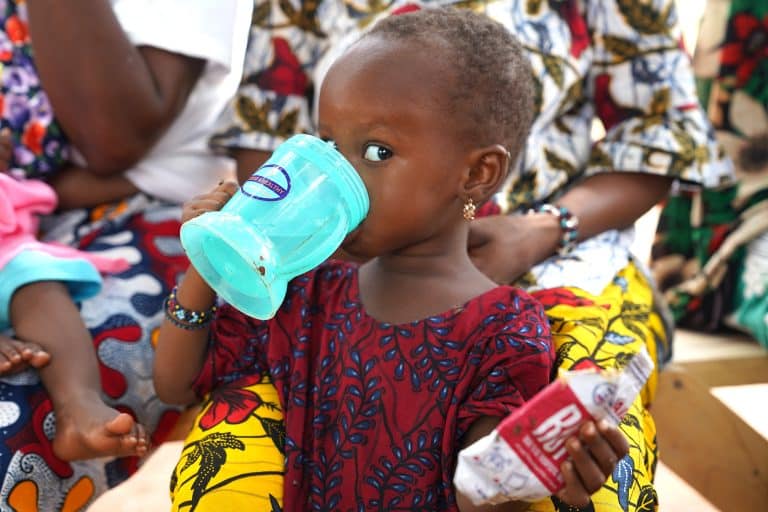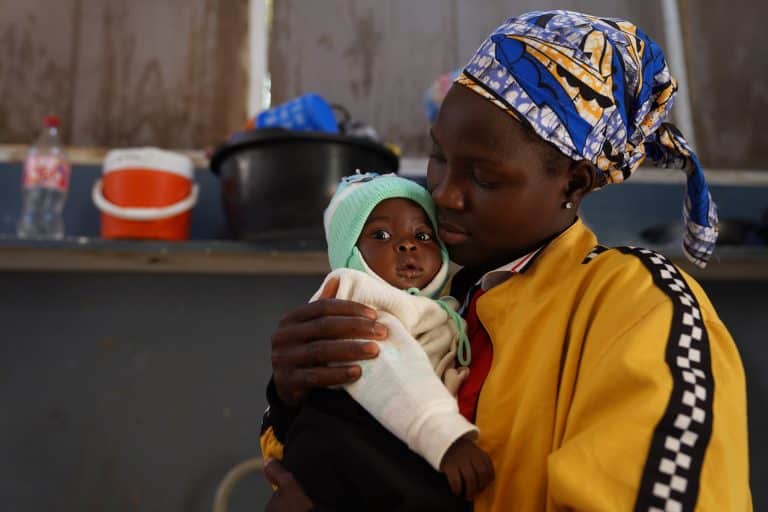Kasongo didn’t know it at the time, but his children had Mpox, an infectious disease caused by the monkeypox virus. Painful, unsightly blisters and skin lesions are some of the more visible symptoms of Mpox, which also causes headaches, swollen glands and fever. Cases of Mpox have been on the rise in the DRC, spreading through human-to-human contact or exposure to contaminated materials and infected animals. More than 14,626 suspected cases of Mpox were recorded in the country in 2023, with 654 deaths linked to the disease*. Maniema province is one of the worst-affected, with the Congolese government officially declaring a Mpox epidemic in the region.
But Mpox was largely unknown in Kasongo’s village, and his family was shunned as a result. “It was very difficult, my whole family was sick, and our community had turned their backs on us,” he recalls. There were no options for treatment available. “The staff at the health center near my village were unable to confirm the disease as they did not have the material to do the tests,” he explains. He was told that the only health facility that could confirm and treat his children’s illness was 115 km away in Tunda, the second largest town in the province.
“I had no choice; I immediately decided to leave our village and move my family to Tunda so that they could get treatment.”
Kasongo’s entire family made the long journey. But by the time they reached the Tunda Health Center, one of Kasongo’s children was in a coma. “The treatment came too late for my son, he passed away. I am grateful that the rest of the family, who were also admitted to the hospital for treatment, made a full recovery,” says Kasongo, standing outside his new home in Tunda surrounded by his now healed children.
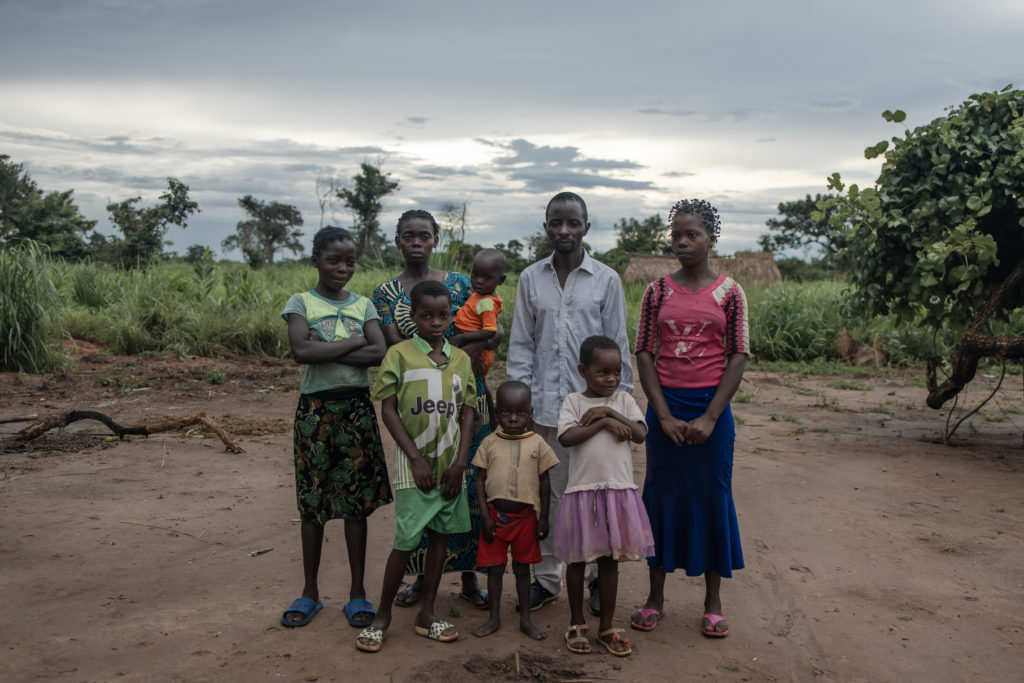
The Tunda Health Center – a beacon of hope for Mpox patients
Kasongo’s family is one of many who find themselves facing Mpox with no access to treatment in their area. Local primary health centers across the province lack medical supplies, equipment and training to diagnose and treat Mpox. The Tunda Health Center, supported by ALIMA, is the only medical facility with the knowledge and capacity to treat Mpox within a 140 km radius.
“Over the past year, in 2023, we treated over 460 people for Mpox”
Dr. Ombotimbe, Medical Coordinator for ALIMA in the DRC
The Mpox treatment unit set up by ALIMA in the Tunda Health Center ensures that Mpox patients receive free, quality care and treatment. ALIMA teams also strengthened Mpox epidemiological surveillance, infection prevention and control, and raised community awareness in the Tunda health zone.
The work of Dr. Ombotimbe and his team is vital, not only for the treatment of Mpox patients, but also for the research it enables on this relatively unknown disease. In collaboration with the Institute of Tropical Medicine Antwerp, the teams have been collecting data and building knowledge on the clinical, biological and biochemical profile of the Mpox disease.
“This research is essential as it helps us better understand the disease, how it affects the human body, and how it can best be treated and managed to reduce suffering, death and further spread,” explains Dr. Ombotimbe.
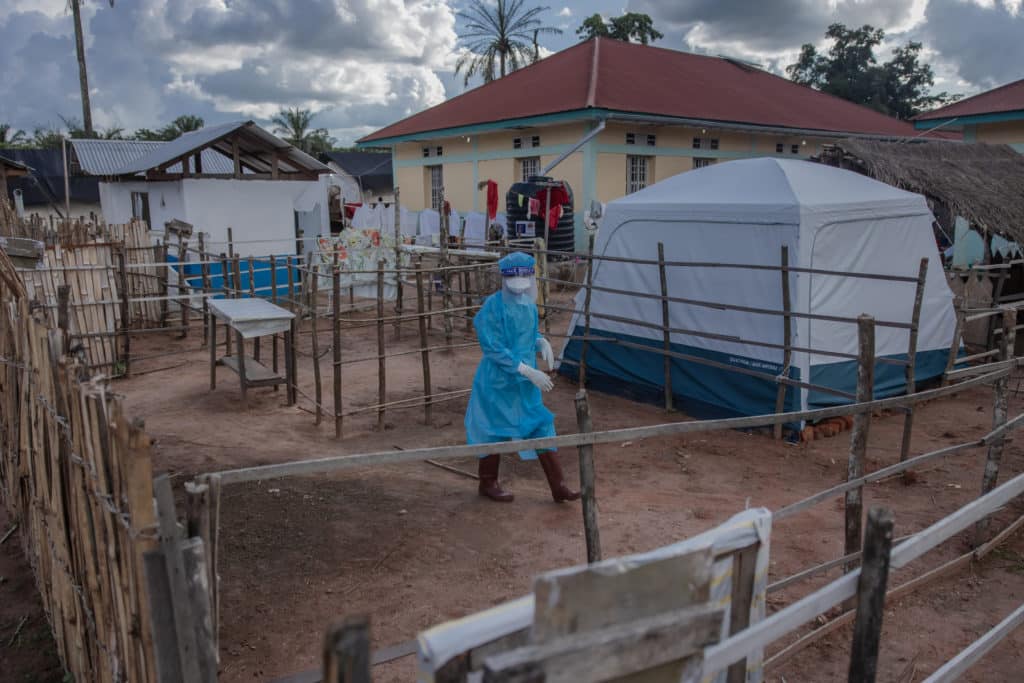
Strengthening the DRC’s Mpox response capacity – capitalizing on research and lessons learned
The positive impact of this collaboration – which brought together humanitarian epidemic response experts, local health authorities and international epidemiology researchers – was evident at a capitalization workshop on the Maniema Mpox epidemic response held in Kinshasa in February 2024. “Our staff in these health zones are now strengthened in their ability to manage Mpox. Community relays have also been trained. Today, we are proud of the province because we can easily detect cases of Mpox through the community,” said Dr. Kibungi Mutanga Junior, Health Minister of the Maniema Province, at the workshop.
Organized by ALIMA in partnership with the DRC National Institute of Biomedical Research (INRB) and the Institute of Tropical Medicine Antwerp, the workshop brought together key regional health stakeholders including the World Health Organization (WHO) and the African Centre for Disease Control and Prevention, as well as international institutional donors – European Union (ECHO), UK Foreign, Commonwealth & Development Office (FCDO), Agence Française de Développement (AfD) and Japan International Cooperation Agency (JICA) – to share learnings and capitalize on Mpox operational research, surveillance, and case management.
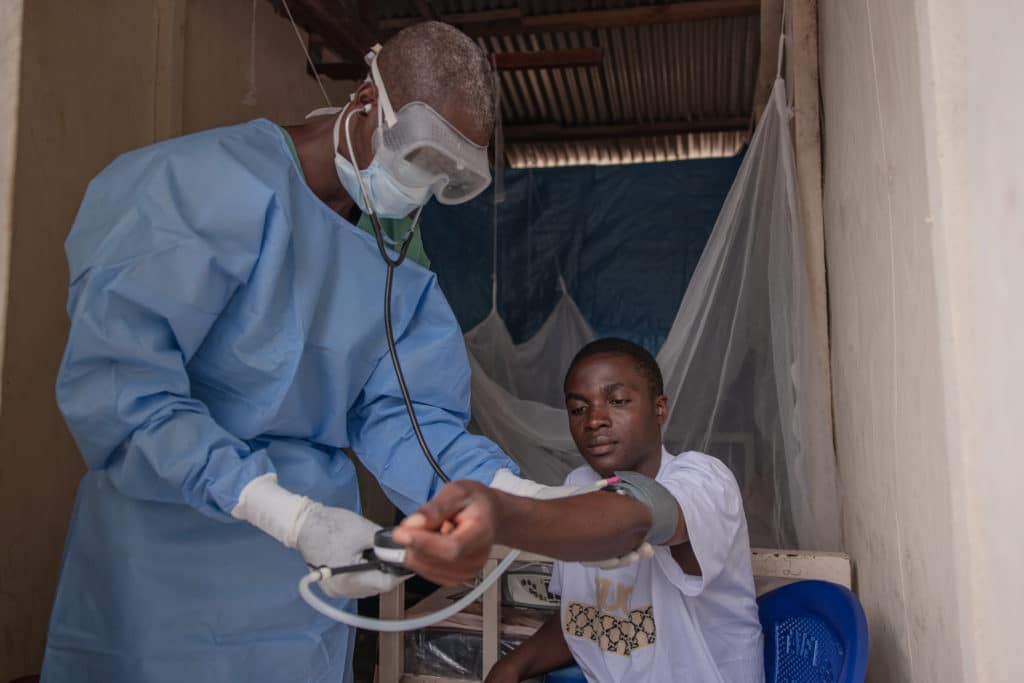
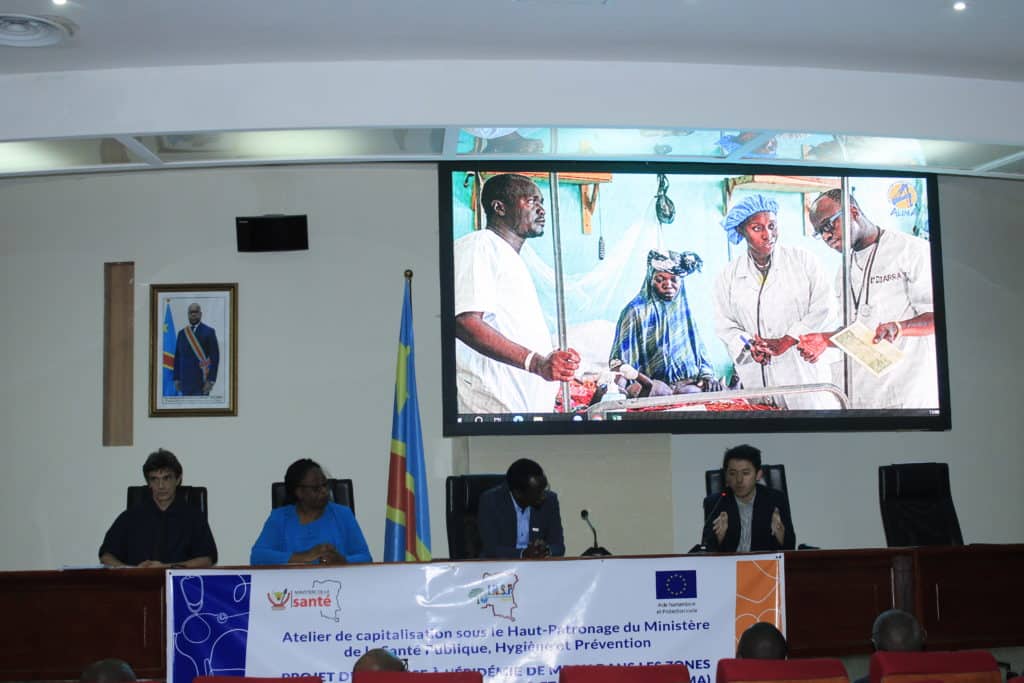
“The discussions during the workshop and the lessons learned from our experience managing the Mpox epidemic in Maniema will provide valuable insights and recommendations for the DRC Ministry of Health; it will inform the government’s action plan for the national Mpox response,” says Dr. Baweye Mayoum, Head of Mission ALIMA DRC.
“This will save more lives in the future and help prevent further outbreaks.”
This national capitalization workshop was made possible thanks to funding from the European Union (ECHO), which has been supporting ALIMA’s Mpox response in the region for the past year.
“It is vital that such initiatives to combat Mpox continue. We call on our donors and partners to mobilize the resources to do so. The people of the DRC are counting on us.” adds Dr. Mayoum.
Cover picture © Guerchom Ndebo / ALIMA


